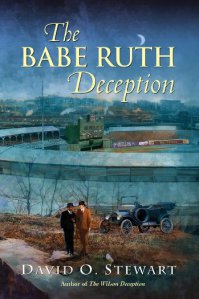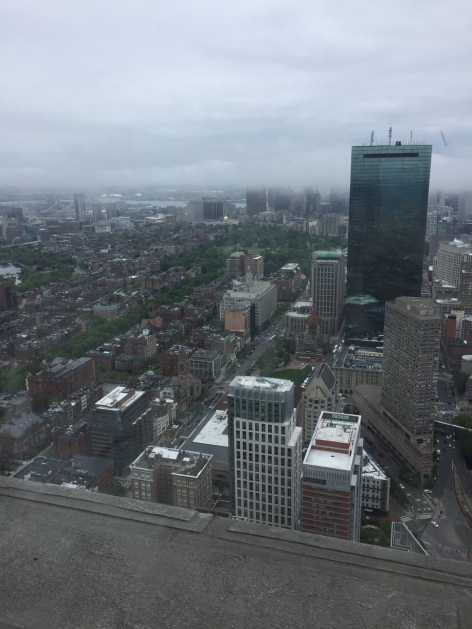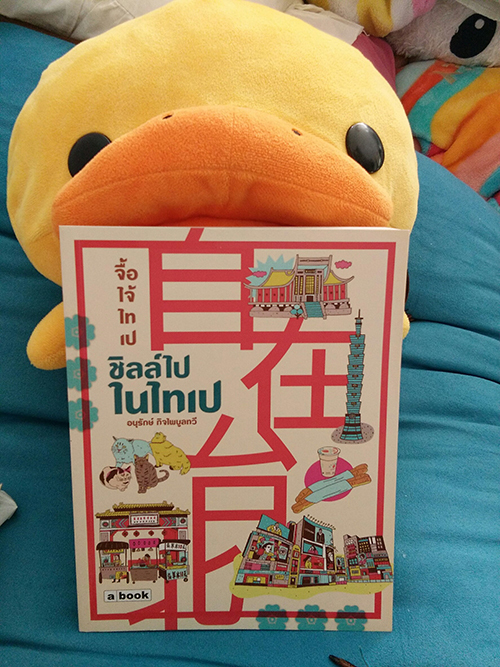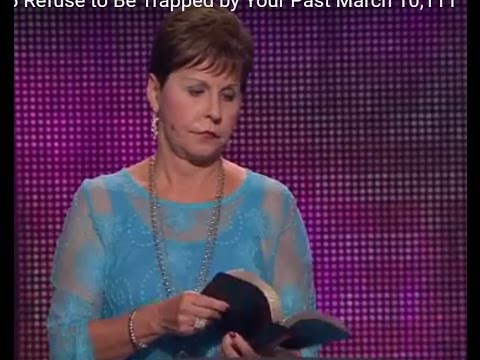
This is the expression of a woman who only now realized the word “just” appears 347 times in her manuscript.
Somewhere around April 2014, the grayness of my life began to lift. At the time, I was being dragged underwater by the riptide of a depression I’d only just begun to address with a therapist, drowned by anxiety I didn’t even recognize as a problem until two years later.
Nevertheless, I began writing fiction for the first time that month. I sat at my keyboard, desperate for relief from all my troublesome thoughts. For a blissful moment when my mind could occupy itself with someone else’s life, rather than my own.
I wrote with no expectation of publication. No knowledge of how or how well I’d write. No sense of what kinds of stories suited my unknown talents (or lack thereof). And holy shit, I wrote quickly. In the space of a month or two, I completed a 90,000-word rom-com set in modern-day Colonial Williamsburg, one which featured plenty of sex and banter, but lacked—sadly—a plot. Shortly thereafter, two novellas (later published as Broken Resolutions and Ready to Fall) were sitting on my hard drive. Together, those novellas took me two and a half weeks to write.
It was easy. It was all so damn easy and joyful. I had no clue about the flaws in my writing (many and varied, as it turned out), and no expectation of a writing career. No pressure, internal or external, other than the drive to dismiss the worries crowding my head.
Because it seemed like the thing to do, though, I started querying and submitting. Then came a contract, which felt like a blessing at the time. (And I should add that I remain grateful to the publishers and agents who wanted those two novellas. I appreciate their faith in a complete newbie.) Someone wanted to buy my books! Six of my books, in fact, four of them still unwritten! How marvelous!
I signed my contracts. I dropped all those other weird stories I’d been plotting without any thought as to my career trajectory or the opinions of potential readers. And I buckled down to write the books in my contract, the next books in what became the Lovestruck Librarians series.
That’s when things started going wonky. Not at first, not when I had months and months in reserve before my first deadlines. Not when I could write books set in a different world, a different time period, between my contracted books.
But once I started running up against my deadlines, once I could no longer write “palate cleanser” books between books I had to write, once my working life became an endless series of Lovestruck Librarians books, Lovestruck Librarians blog posts, Lovestruck Librarians developmental edits and copy edits and page proofs, and—of course—Lovestruck Librarians promo and marketing, that swift writing pace so praised by my then-agent and then-editor began to falter.
My second Lovestruck Librarians book maybe took me a month, month and a half to write. The third book took me at least three months. The sixth and final story? More than that. In part because I spent February of last year paralyzed by acute anxiety, capable of nothing but watching endless hours of HGTV, a channel I’d never before even bothered to visit. But it, along with the Food Network, was the only channel whose shows provided me enough distraction to soothe my worries for a moment, but not enough complexity to overwhelm my incapacitated brain.
As of the June 2017 publication of Hidden Hearts, that last Lovestruck Librarians book, I hadn’t had an easy, joyful writing experience since January 2015. I’d survived two and a half years where the writing became ever harder, not easier. My actual quality of prose might have improved—and I hope it did, since I worked on it—but the experience of writing had turned much more painful. A provocation of my various mental and emotional issues, not a relief from them.
Yes, writing is a job. Yes, sometimes you have to keep slogging when you don’t feel like it, because you’re a professional. I get it. I really do. But when you’re struggling to stop yourself from sliding back into the abyss of depression, you can start to question whether a job that nudges you toward the edge of that abyss again and again is really worth it.
I began to believe I’d never truly enjoy writing again. Not like I had. Not like I remembered, although the memory was beginning to seem more and more distant. More and more unbelievable.
But. BUT.
I’d actually done something relatively smart as I struggled through those deadlines and put out my final contracted books. Being a navel-gazer, as it happens, has its perks.
I paid attention to myself throughout those two and a half painful years. Even flailing between missed deadlines and periods of paralysis, I noted when the writing came more easily and when it didn’t. Under what circumstances I could recapture a few happy writing days, and under what circumstances I shut down.
By the time I completed my contract, I’d cobbled together a list of what I thought would help me write with joy again. I needed not to write under deadline if at all possible. I needed to alternate between writing different series, to give my brain a break. I needed not to read reviews. I needed not to compare myself to other writers while drafting, which meant I needed not to be on social media while drafting. I needed sufficient rest between books, maybe more than what other, less depression-prone writers might need.
So on June 21, the day after Hidden Hearts came out, I found myself lightheaded with both fear and relief. I had no books under contract. No agent or editor to please. I could do literally anything I wanted. I could write or not write. I could tackle more rom-coms or sci-fi romance or paranormal romance or…anything. I could get a few weeks of sleep and contemplate my next step.
First, I rested a bit, because I needed it. And then I decided to run an experiment: How would it feel to write precisely as I’d imagined, in a way that should give me the best possible chance of truly enjoying the process again? How would it feel to write without deadlines, unbeholden to any particular series, detached from social media and reviews both, and in no particular hurry?
So that’s what I did. This July, I took a hiatus from social media, chose the plot bunny that was hopping the highest, told myself I wasn’t in any hurry to finish the story, and starting writing a novella about a woman hunting for a tiny house with her longtime BFF—who turns into something more along the way.
I wrote that 32,000-word novella over the course of ten days. Ten. And none of those days, none of those words, felt like a burden. For the first time since early 2015, the process became joyful to me again, something that nourished rather than drained me. And the evening I completed my first draft, I started getting ideas for another story. Another novella, again chosen simply because it seemed like the most fun idea for me to write at that moment.
The fact that I could put my plan into action, of course, is a sign of privilege. Anyone writing to support themselves and/or their families would have a hard time taking long breaks between books or deviating from money-making series, for example. And I’m not saying my particular plan will work for everyone.
But many of my writing friends in recent months have talked to me about a desire to quit writing. About how the joy in their process had disappeared, and how contracts and pressure (self-imposed or otherwise) had left them miserable and anxious. And while I never considered quitting, I had pretty much resigned myself to endless years of difficulty and worry and hard writing.
So here’s what I want to say to those friends—and to myself.
First: There’s no shame in quitting if that’s what you need to do for your own happiness or because the circumstances of your life (financial, emotional, practical, etc.) require it.
Second: There’s also no shame in taking a break, if you need one and you can take one. As has been said many, many times, the idea that “real” writers must write every day—or every week, or every month—is a steaming pile of bullshit. Anyone who says differently is both condescending and willfully blind to the realities of people without extra time, extra energy, or the mental/emotional/physical spoons to follow this ill-conceived advice. Some people can write through terrible times in their lives, fitting in words via stolen moments while exhausted, and good for them. But if you can’t, that doesn’t make you a lesser person or invalidate your identity as a writer.
In the throes of anxiety, I went several months without writing, and I’m still a real writer. Anyone who thinks otherwise can come at me.
Third: If you’ve lost the joy in your writing, you might want to consider paying close attention to the circumstances that either facilitate or harm your process—and then see if you can change your writing conditions to better suit your needs. Not everyone will be able to do so. But if you can, or if the only other option is quitting entirely, it might be worth a try.
Look at your deadlines. Can you talk to your editor/agent about getting more time? Can you ensure you have more time in your next contract? Can you self-pub on a more relaxed schedule?
Look at whether you need to write under contract. Because if you don’t, you might want to consider other options.
One, of course, is self-publishing. A second option is the route I may very well take. I plan to write four or more books in a series before showing them to a potential agent or editor (if I decide to search for either, which isn’t a given). If they want the books and we can come to terms, great! I won’t be drafting under contract. If they don’t want the books: Hello, self-publishing!
Look at your social media habits. Would you be happier with an occasional break? Would you be happier without social media, period? Is either a possibility?
Look at whether you give your writing brain enough room to play. Would you find writing occasional books in a different series or a different subgenre invigorating? What about writing an occasional novella, if you tend to publish longer stories? Or a single title-length story, if you tend to write shorter books? If variety would make your writing life more fun, and you have the time to indulge yourself with different types of stories, go for it!
Look at your writing schedule. Can you take more writing breaks? Do you need to stop telling yourself you aren’t a real writer when you don’t write for a day, a week, a month? If you require more rest, take it if you can. Being exhausted and burned out is not a badge of honor. You deserve to be happy. The idea that true artists are necessarily tortured souls is yet more bullshit. Period.
Fourth: Just because your last book was difficult to write—hell, just because your last six books were difficult to write [clears throat; points to self]—doesn’t mean your next book will be. It might be, but that’s not a given. I promise.
Fifth: Even your least productive periods might not end up wasted. See: my anxiety-induced HGTV binge and my new novella. Also, I’ve mined my experiences with depression and anxiety for characters in my books. Would I rather have had to research those topics, rather than address them from personal experience? Of course. But I might as well wrest some benefit from months—years—spent battling my own thoughts.
I realize my period of easy productivity may not last long. But if my needs change, I’ll try to shift to meet them once again. I hope this experience has given me the self-knowledge necessary to do so. And I’m not promising that the book I so happily wrote doesn’t suck. It might. But given how much fun I had writing it, I don’t really give a shit.
If you’re thinking about quitting, I understand. But I hope maybe you’ll experiment a bit with your writing and your writing process before you do. Because while you may not miss writing—and while there are many valid and important reasons to stop writing—the world will miss your stories. Because they’re yours, and because you’re important. Even when you might not think you are.
Hugs and ♥,
Olivia





